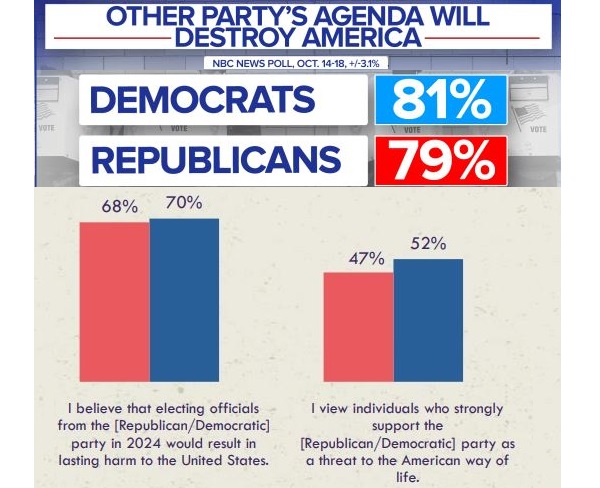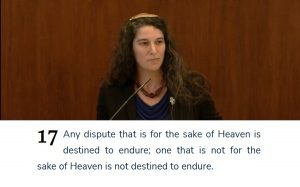Peace is a process that has 3 requirements
5 min read
by Marty Wilde
We can benefit from considering how to resolve the conflicts in our communities, nation, and world without unnecessary violence.
We have become too intolerant of differences to support conflict resolution through deliberative processes. In a recent poll, 80% of people believed that, if given the chance, the opposing political party would end the United States as we know it.
Peace is a process that requires us: (1) to respect differing interests, (2) support effective formal conflict resolution processes, and, when nonviolence fails, (3) to use military force in ways that effectively support representative government.
Appreciate the legitimate interests of others
Representing a swing district gave me an appreciation of the legitimate interests of my constituents, even when I disagreed with them.
For instance, Brownsville was very concerned that water quality monitoring in the Calapooia River would force them to invest in a water treatment system that they could not afford. While I fundamentally disagreed with them on water monitoring, I appreciated that they really couldn’t afford the cost of a new system and worked to find a way to help fund it if they need arose.
When Mike McLane and I were both state representatives, we disagreed on a great many important issues, but we probably voted the same on the 90% of bills that were non-controversial. We also worked together in the Oregon Air National Guard and he remains a good friend.
Similarly, at the national level, while I am unapologetically pro-choice, I respect people who have a religious belief the abortion is wrong. I worked to find ways to protect reproductive rights while also protecting their interest in not wanting to be complicit in an act they considered to be murder. As often as not, the conversations I have with them yielded ways to preserve reproductive freedom and keep them from feeling complicit in acts they consider to be wrong.
That doesn’t mean respecting illegitimate interests – there is no value in white nationalism or anti-democratic lawlessness. However, we should not assume that these values are widely shared. I am sure that there are as many Republicans frustrated with the common Democratic belief that they all oppose reasonable immigration as I am at the common Republican belief that all Democrats believe the police should be abolished.
We impoverish our civil discourse and promote polarization when we fall prey to the belief that, when our neighbors hold different values, we can no longer speak with them, even to clarify where we disagree.
Enforce timely and effective justice
To bring peace, justice must come swiftly and effectively. The recent civil verdicts against Rudy Giuliani and Alex Jones show the best and worst of our justice system. Yes, they were finally found responsible for their odious abuses of free speech to defame innocent victims. On the other hand, they both took far too long to come to a verdict, and both defendants have hidden assets and used the bankruptcy system – which expressly may not be used to evade these kinds of verdicts – to slow the victims from receiving compensation for their injuries.
A better system would require speedy trials and measures to identify and preserve property that could be used to compensate the victims. One silver lining is that, while the victims will likely only receive pennies on the dollar, at least the public acknowledgement that these people are liars will likely deter media companies (who do have assets) from continuing to amplify their falsehoods.
The Trump cases represent examples of untimely justice in the criminal context. The investigations took far longer than they needed to and now the defense is unreasonably delaying the trials. When I was a state prosecutor, we used to joke that federal prosecutions were great, as long as you had an easy case to win and didn’t mind taking a decade to get a conviction. Regardless of the outcome we prefer, these delays deny justice for the prosecution, the defense, and the public.
Accept the limits of military force
In the U.S., we consistently overestimate the value of military force in achieving political goals. We lost our wars in Vietnam and Afghanistan because we used military force in support of governments that the people there would never support. Nor, in fairness, should they have. It was not that the enemy was any better, but rather that the governments we supported were fundamentally so awful that they would never enjoy public support.
Russia is making the same mistake in Ukraine by seeking to impose a regime that has virtually no support by the Ukrainian people. To a degree, both Israel and Hamas are as well, by engaging in violence with no vision of an outcome that leaves the people of both Israel and Gaza with peaceful and representative governments. I worry that we are doing the same in Syria, where our troops continue to serve without a clear and achievable goal.
Military force can certainly eliminate an immediate threat, but it cannot force people to accept a government that does not earn their support. The legitimacy of military force depends, in part, on its support of an achievable political goal.
We must also accept the limitations of our own military. Where we do well, we do well because we support a government that has earned the support of the people with means that are appropriate and play to our strengths.
In Ukraine, we are using our industrial and intelligence capacities to support a government that represents the will of the Ukrainian people. In the Red Sea, we are using naval forces offshore to protect civilian shipping from violence. These are roles in which we excel and can make a real difference.
Peace is a process, not a destination
It is always tempting to believe that, if we do a certain thing, we will have peace. However, we cannot avoid all conflict, nor, if we think about it, do we really want to. I like living in a world where people have different opinions, because they help me reassess and refine my own. But we can work towards a system that resolves these conflicts with justice and with a minimum of force. Let’s commit to that.
Marty Wilde represented central Lane and Linn counties in the Oregon legislature. For more of his Letters From a Recovering Politician, subscribe at https://martywilde.substack.com/subscribe.




